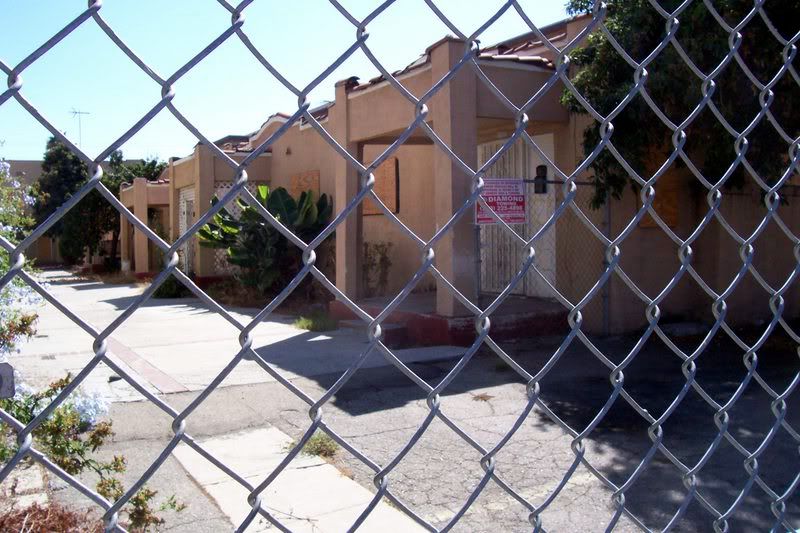The Ink And I
There’s a phenomenon I’ve noticed in recent years that’s bothered me for some time and it only seems to have gotten worse.
Not to go all bibliophilic on your ass again, but it has to do with books.
Not new books, as they seem to be produced just as well as they ever were, though I think a great many of them could benefit from a little more proofreading.
No, I’m talking about reprints of older books, volumes that are probably well into their 20th edition or more.
As someone who has nothing better to do, I’m often curious about what the current edition of a favorite book looks like at the moment. So I’ll browse the shelves out of curiosity and examine a familiar volume as if I’ve come to it afresh.
Unfortunately for readers who are actually new to these books, the news is very grim.
God knows what the reason for it is, as technology seems to have improved by leaps and bounds in every other way, but if you pick up the latest paperback edition of your favorite novel, chances are you’ll notice what I did: it resembles nothing so much as a bad xeroxed copy of the original.
These are books that I know well and I’m familiar with their appearance, layouts, and their fonts.
The versions of the books I grew up reading seem to exist now only in shabby photocopied editions, the letters blurry and bleeding onto the page. I assume it’s done for cost reasons, but shouldn’t our standards for these things be higher than this? They’re depressing to behold. My current advice to anyone seeking to read an older novel would be to find the oldest edition in the best shape that you can.
It’s as if that part of our culture no longer holds any value for us. Or very little. Just print ‘em up and toss ‘em out, no one’ll notice.
And lest you think I’m being a little too anal or fetishistic about this, check it out for yourself. Look on these works, ye mighty, and despair.
It’s a marked contrast, however, to the way we’re treating some other kinds of entertainment.
I’m as happy as the next person to buy the latest remastered version of a familiar CD or a digitally improved DVD of a familiar movie.
My god, when it comes to music and movies, we can’t seem to stop ourselves from providing endless improvements.
But I suppose they generate a certain amount of revenue. Books, I fear, are fighting a losing battle.
I’m not sure what it means when the latest teenage comedy manages to provide an audio commentary and high-definition visuals, while the latest paperback of a literary classic looks like it was printed with wood carvings.
If you typed it up yourself and printed it out at home, it would actually look better and be easier to read.
It’s like looking at a house that was beautiful once, before the wind and the rain got to it.
No one really goes there anymore.
Not to go all bibliophilic on your ass again, but it has to do with books.
Not new books, as they seem to be produced just as well as they ever were, though I think a great many of them could benefit from a little more proofreading.
No, I’m talking about reprints of older books, volumes that are probably well into their 20th edition or more.
As someone who has nothing better to do, I’m often curious about what the current edition of a favorite book looks like at the moment. So I’ll browse the shelves out of curiosity and examine a familiar volume as if I’ve come to it afresh.
Unfortunately for readers who are actually new to these books, the news is very grim.
God knows what the reason for it is, as technology seems to have improved by leaps and bounds in every other way, but if you pick up the latest paperback edition of your favorite novel, chances are you’ll notice what I did: it resembles nothing so much as a bad xeroxed copy of the original.
These are books that I know well and I’m familiar with their appearance, layouts, and their fonts.
The versions of the books I grew up reading seem to exist now only in shabby photocopied editions, the letters blurry and bleeding onto the page. I assume it’s done for cost reasons, but shouldn’t our standards for these things be higher than this? They’re depressing to behold. My current advice to anyone seeking to read an older novel would be to find the oldest edition in the best shape that you can.
It’s as if that part of our culture no longer holds any value for us. Or very little. Just print ‘em up and toss ‘em out, no one’ll notice.
And lest you think I’m being a little too anal or fetishistic about this, check it out for yourself. Look on these works, ye mighty, and despair.
It’s a marked contrast, however, to the way we’re treating some other kinds of entertainment.
I’m as happy as the next person to buy the latest remastered version of a familiar CD or a digitally improved DVD of a familiar movie.
My god, when it comes to music and movies, we can’t seem to stop ourselves from providing endless improvements.
But I suppose they generate a certain amount of revenue. Books, I fear, are fighting a losing battle.
I’m not sure what it means when the latest teenage comedy manages to provide an audio commentary and high-definition visuals, while the latest paperback of a literary classic looks like it was printed with wood carvings.
If you typed it up yourself and printed it out at home, it would actually look better and be easier to read.
It’s like looking at a house that was beautiful once, before the wind and the rain got to it.
No one really goes there anymore.


















